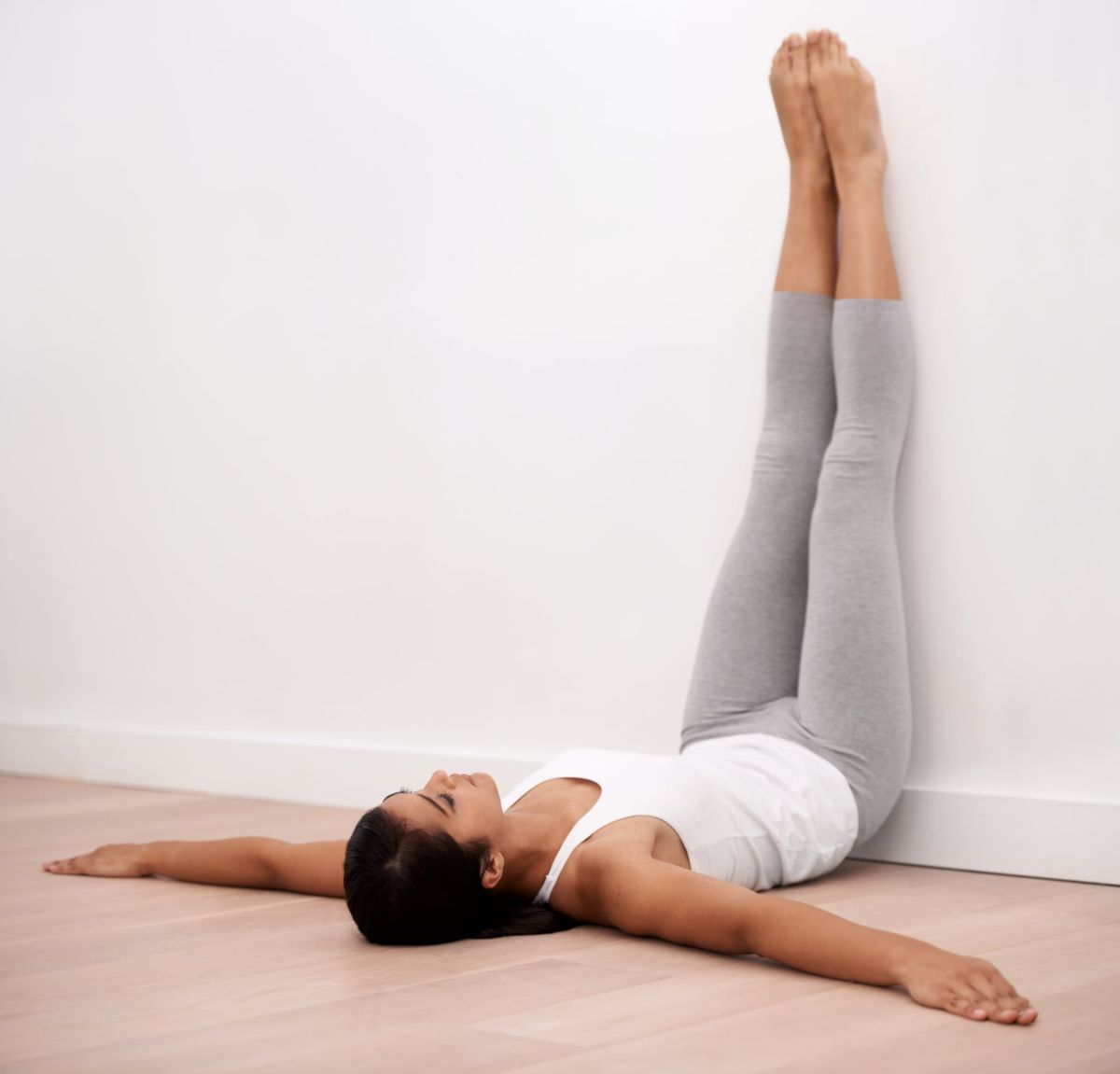Are you having a hard time sleeping? Do you wake up anxious or wired… even after you got a full eight hours of rest?
The culprit might just be your nervous system — and it could be more dysregulated than you realize.
Believe it or not, your nervous system plays a major role in your overall well-being, emotional balance, and the quality of your sleep. When it’s overwhelmed or out of sync, it becomes difficult to fully relax, recover, and restore.
Enter: yoga.
Yoga is a powerful practice that not only stretches the body but also regulates the nervous system, inviting your body back into a state of calm and relaxation.
In this blog, we’ll explore simple, grounding yoga practices to help you nourish your nervous system and reclaim deep rest.
🧠 But first, what Is Nervous System Dysregulation?
Your nervous system is the control center of your body. It includes:
- The sympathetic nervous system (“fight or flight”)
- The parasympathetic nervous system (“rest and digest”)
When you are chronically stressed, your body can become stuck in a sympathetic state. This means you always fee, on high alert—even when you’re trying to sleep.
Signs your nervous system may be dysregulated:
- Difficulty falling or staying asleep
- Constant fatigue or burnout
- Feeling emotionally reactive or numb
- Racing thoughts or inability to slow down
- Digestive discomfort
- Chronic tension or tightness in the body
🧘♀️ How Yoga Supports Nervous System Nourishment
Yoga is more than movement—it’s a form of somatic healing; a body-centered approach to therapy to address trauma, stress, and emotional regulation.
Yoga poses can help release tension, regulate your breath, and activate your parasympathetic nervous system — helping you feel calm, safe, and grounded.
Below are four gentle yoga poses that support nervous system nourishment and encourage deep rest:
1. 🙇♀️ Child’s Pose (Balasana)
Child’s pose is deeply grounding. It helps calm the mind, release tension in the back and shoulders, and invite a sense of safety.

How to practice:
- Kneel on the floor with your big toes touching, knees wide.
- Fold forward, letting your forehead rest on the mat or a cushion.
- Extend your arms forward or rest them beside your body.
- Breathe deeply into your belly. Stay for 1–3 minutes.
👉 How to Practice Child’s Pose
2. 🦋 Butterfly Pose (Baddha Konasana)
Butterfly Pose is a hip-opening yoga posture that supports emotional release and relieves lower-body tension. It’s especially beneficial after a long and stressful day.
How to practice:
- Sit on the floor, bring the soles of your feet together, and let your knees fall open.
- Hold your feet or rest your hands on your shins.
- Gently fold forward and breathe slowly.
- Hold for 1–3 minutes.
👉 Learn more about Butterfly Pose
3. 💗 Supported Heart Opener
The Supported Heart Opener is a gentle backbend that helps open the chest and counteract the hunched, protective posture caused by stress. It invites in more breath and emotional expansion.
How to practice:
- Lie back over a bolster, pillow, or rolled-up blanket placed lengthwise under your spine.
- Let your arms fall open to the sides, palms facing up.
- Allow your chest to gently expand.
- Stay for 3–5 minutes, breathing into your belly.
👉 Explore heart-opening yoga for stress relief
4. 🦶 Legs Up the Wall (Viparita Karani)
The Legs Up the Wall involves lying on your back with your legs extended vertically against a wall. It’s a restorative yoga posture that soothes the nervous system, improves circulation, and is especially helpful for calming the mind before sleep.

How to:
- Sit sideways next to a wall, then swing your legs up as you lie back.
- Let your arms rest beside your body, palms facing up.
- Close your eyes, relax your jaw, and breathe slowly.
- Stay here for 5–10 minutes.
👉 How to Do Legs Up the Wall Pose
Polysleep Takeaway
Your nervous system is the foundation of your rest, resilience, and emotional well-being. When it’s nourished with a gentle yoga practice, everything flows more smoothly—including your sleep.
Remember: Start slow, be consistent, and enjoy the process.
Namaste!










